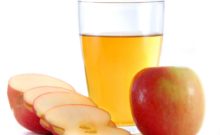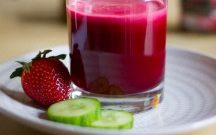 Organic Whole Foods
Organic Whole Foods
Eating whole foods can add years to your life, but what is a whole food? You know you need to eat healthy. You also know that fruits and vegetables should make up the bulk of your diet. The minimum for a healthy diet is five servings of veggies and fruits a day to reduce your risk of stroke and heart disease. However, you want to go even further – you want to feel good all the time and maintain a healthy weight, enhance your immune system, and increase your overall wellness. So, how can whole foods help you accomplish this?
Whole Foods is Not Fad Dieting
You have probably heard of a whole foods diet. It may have been someone you know eating a low-carb/high-fat diet or a friend who is on a temporary raw foods diet. These may be forms of a whole foods diet although they are extreme and can be unhealthy. These are fad diets and not the kind of whole foods to which we are referring. Eating whole foods should be a lifestyle – not a diet. A whole foods lifestyle is a healthy way to eat for an overall healthy life that can lead to weight loss.
What’s a Whole Food Anyway?
Whole foods are foods that have been processed as little as possible. They are free from preservatives or additives. They are completely clean without any artificial substances. They are complete and as nature intended. You may notice I noted, “…processed as little as possible.” This is because you can make a smoothie with all fruits and vegetables and still consider it a whole food smoothie. A Whole foods diet is eating food that is closest to its most natural state. Does this mean you have to eat everything raw? No. It simply means that foods should be unprocessed. Whole foods like vegetables, fruits, whole grains, nuts, and legumes will retain their fiber and other beneficial phytonutrients. These micronutrients are often removed in processed foods. When these foods are processed, your once nutrient rich food becomes unhealthy and can lead to health issues down the road! Diabetics know this to be all too true when they need to compare the benefits of long grain brown rice to processed white rice! There is a big difference in nutrients and the glycemic index. A whole foods way of eating could mean eating:
- Whole grains instead of refined grains
- Organic Fruits, vegetables, and legumes
- Meat can be on the whole foods list if limited in processing (not turned into chicken nuggets or breaded patties – but rather skinless whole organic chicken breast or grass-fed beef)
- Top your whole grain oatmeal with fresh berries
Choosing foods that are all-natural and can be prepared at home without boxed mixes and preservatives will help you lead a whole foods lifestyle. Find food that can be grown in your garden, purchased at a local farmer’s market or in the outer aisles of your grocery store. In the next portion of our whole foods series, we will outline the many health benefits of living an organic whole foods lifestyle.
Applications & Resources
- Check out WebMD and find 6 Reasons to lead a whole food lifestyle!
- Read here about how a healthy lifestyle with fruits and veggies can increase wellness
- Go to Straight Up Food to learn that the word diet can be a way of life with whole foods
iGOZEN is a philosophy and a way of life. A Zen life is about balance and harmony, and this means finding ways to life that are complete. A whole foods lifestyle compliments an iGOZEN lifestyle that is organic and chemical-free. Complete your home with 100% toxic-free Everyday Cleaner or one of our organic food washes.



